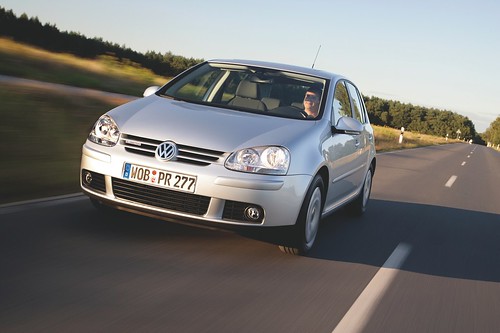You’ll know from recent posts that I’ve been obsessing somewhat about the ‘new car’ decision. I thought I’d put the new ‘eco-efficient’ technologies to the financial test, trying to get a sense of how much money they’d save me on an average year.
This spreadsheet lays out the detail; but the essence of it is that I worked out the range of a Bluemotion VW Golf compared with a normal diesel car and divided it by the total estimated distance I anticipate driving per year (4000 miles or so). This gives me a theoretical number of refuels per year, on which basis you can estimate a saving.
Well, the saving, taking a pessimistic perspective on fuel prices and rounding up in a few other places to give Bluemotion the advantage, comes to about £250 a year. The tax-free status of the car saves you another £165 a year or so – for a total annual saving of £415.
Given that Bluemotion cars currently cost about £6,000 more than a slightly older, but not ludicrously less efficient 1.9 litre TDI Golf (30% odd), I’m trying to work out if the investment is justified. It comes to an effective return of 6.9% a year on the additional investment, which is not bad.
The resale value point might swing it though. If you enhance the rate of return with the possibility that Bluemotion cars will be worth more on resale (even if that’s only £100 a year more than the older car) – on account of the desirability of the tax break and presumably the increasing expectation that a car is eco-efficient – then that 6.9% might be more like 8% or 9%- at which point it’ll be doing as much for me as a reasonable rate of return on a regular investment. And given that tax rates and fuel prices are only likely to go one way – it might make good sense.
Is my maths right? What does anyone think? I obviously haven’t allowed for inflation or modelled for tax / fuel price changes beyond fuel at £1.50 per litre.


